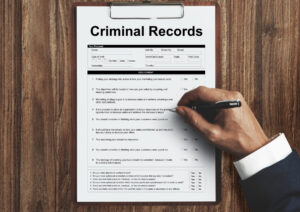Have you ever found yourself in a situation where a simple document could unlock countless opportunities? Imagine applying for a job abroad or trying to secure a visa, only to find out you need a police extract from Nigeria. It feels overwhelming, doesn’t it? You’re not alone.
Many Nigerians face the same challenge, and understanding how to obtain this crucial document can make all the difference.
In this guide, we’ll walk you through everything you need to know about police extracts in Nigeria, from what they are to the exact steps to get one.
You’ll learn about the costs involved and get answers to the most frequently asked questions. By the end of this article, you’ll feel empowered and ready to tackle your application with confidence.
What are Police Extracts in Nigeria?
When we talk about police extracts, we’re referring to official documents that provide a summary of your criminal history, if any. These documents are crucial for various legal and administrative purposes, including job applications, visa processing, and even court proceedings.
In Nigeria, a police extract serves as a verification tool, confirming whether you have any past criminal records. It’s an essential part of ensuring trustworthiness in both personal and professional settings.
Types of Documents That Can Serve as Police Extracts
When it comes to police extracts in Nigeria, you may come across several types of documents that serve different purposes.
Here’s a deeper look into each:

1. Criminal Record Extract
This document provides a detailed summary of any criminal offenses that are recorded against you. It includes:
- Convictions: Any past criminal charges that led to a conviction.
- Pending Cases: Details of any ongoing legal matters.
- Offense Dates: The dates when offenses occurred, if applicable.
A Criminal Record Extract is often required for legal proceedings, especially if you’re involved in a court case or need to prove your legal history for employment.
2. Police Clearance Certificate
Commonly required for job applications, immigration, or travel, this certificate states that you have no recorded criminal activity. Key points include:
- Background Check: Confirms that you have no criminal records on file.
- Validity: Often needed for visa applications or employment, as it assures employers and immigration officials of your clean background.
The Police Clearance Certificate is vital for those seeking employment in sensitive sectors or intending to travel abroad.
3. Character Reference Letter
While not a formal police extract, this letter is sometimes provided by a police authority or a community leader attesting to your character. It may include:
- Good Conduct: Statements about your behavior and contributions to the community.
- Community Standing: Insights into your reputation among peers.
This letter can be useful in situations where you want to highlight your good character, especially in legal matters or community roles.
4. Background Check Reports
In some cases, especially for employment or sensitive roles, employers may request a more comprehensive background check that includes police extracts. This report may cover:
- Employment History: Verification of your job history.
- Credit History: Financial standing, which might be relevant for specific jobs.
While this isn’t a police extract per se, it often incorporates the findings from your criminal record extract.
Why You Might Need a Police Extract
Understanding why you might need a police extract can help clarify its importance in various aspects of life. Here are some common reasons:
1. Employment Opportunities
Many employers require a police extract during the hiring process, especially for positions that involve security, trust, or sensitive information. A clean record can enhance your chances of securing the job.
2. Visa Applications
If you’re planning to travel abroad, many countries ask for a police clearance certificate as part of the visa application process. This document helps assure immigration officials of your good character and lack of criminal history.
3. Legal Requirements
In certain legal situations, such as court cases or custody battles, a police extract might be required to establish your background. It can serve as evidence of your behavior and character.
4. Adoption and Fostering
When applying to adopt or foster a child, agencies often require a police extract to ensure the safety and well-being of the child. This is a crucial step in the vetting process.
5. Academic Institutions
Some educational institutions may require a police extract for admission, especially for programs that involve working with vulnerable populations, such as teaching or healthcare.
6. Professional Licensing
Certain professions, like law, healthcare, and finance, may require you to present a police extract as part of the licensing process. This helps ensure that individuals in these fields have a trustworthy background.
7. Personal Peace of Mind
Even if it’s not required for a specific purpose, having a police extract can provide peace of mind. It allows you to know exactly what is on your record, if anything, and helps you be prepared for any situation that may arise.
The Process of Obtaining a Police Extract in Nigeria
Obtaining a police extract might seem daunting, but it’s a straightforward process if you know the steps. Here’s a detailed guide to help you navigate it.
Step-by-Step Guide
- Determine the Type of Extract Needed
- Identify whether you need a Criminal Record Extract or a Police Clearance Certificate based on your specific requirements.
- Gather Required Documents
- Prepare the necessary documents, which typically include:
- A valid form of identification (e.g., national ID, passport)
- Recent passport-sized photographs
- Application form (can be obtained at the police station or online)
- Any other relevant documents, depending on your reason for requesting the extract.
- Prepare the necessary documents, which typically include:
- Visit the Nearest Police Station
- Go to your local police station to submit your application. Some larger police commands may also offer dedicated units for processing police extracts.
- Complete the Application Form
- Fill out the application form accurately. Ensure all details match your identification documents to avoid delays.
- Submit Your Application
- Hand in your completed application form along with the required documents. You may need to pay a fee, which varies by location.
- Provide Fingerprints (if required)
- In some cases, you might be asked to provide fingerprints. This step is crucial for accurately processing your background check.
- Receive Acknowledgment
- Once your application is submitted, you should receive an acknowledgment slip. Keep this safe, as it contains details about your application and may be required for follow-up.
- Wait for Processing
- The processing time can vary. Typically, it takes anywhere from a few days to a few weeks. Be patient and check back if you haven’t received your extract within the expected timeframe.
Where to Apply
- Local Police Stations: This is the most common place to apply for a police extract.
- Online Portals: Some states may have online application systems for police extracts. Check your state’s police command website for more information.
Required Documents
Make sure you have the following ready:
- Valid ID: National ID, passport, or driver’s license.
- Photographs: Recent passport-sized photos.
- Completed Application Form: Available at police stations or online.
- Additional Documents: This might include letters of request or references, depending on the purpose.
Costs Involved in Obtaining a Police Extract
Understanding the costs associated with obtaining a police extract can help you budget accordingly. Here’s a breakdown of the various fees you might encounter:
1. Application Fees
- Basic Fee: Most police stations charge a standard fee for processing your application. This fee can range from ₦1,000 to ₦5,000, depending on the state and the type of extract you are applying for.
- Additional Charges: Some states may impose extra charges for services such as expedited processing or specific document requests.
2. Document Procurement
- In case you need to gather additional documents (like certificates or references), there may be costs associated with obtaining these items. Always factor these into your budget.
3. Photography Costs
- You’ll likely need recent passport-sized photographs as part of your application. If you don’t have these on hand, you may need to pay for professional photography services, which can cost around ₦500 to ₦1,500 per set.
4. Follow-Up Fees (if applicable)
- In some cases, if your application requires follow-up visits or additional documentation, be prepared for any extra costs associated with those actions.
5. Total Estimated Costs
Overall, the total costs for obtaining a police extract can range from ₦10,000 to ₦30,000, depending on the specifics of your situation. It’s always a good idea to check with your local police station for the most accurate and up-to-date pricing.
Tips for a Smooth Application Process
Applying for a police extract doesn’t have to be stressful. Here are some practical tips to ensure everything goes smoothly:
1. Prepare Your Documents in Advance
Before you visit the police station, make sure you have all required documents ready. This includes your valid ID, photographs, and completed application form. Double-check everything to avoid delays.
2. Visit During Off-Peak Hours
To avoid long queues and waiting times, try to visit the police station during off-peak hours. Early mornings or late afternoons on weekdays are usually less busy.
3. Be Clear About What You Need
When speaking with police officers or clerks, be clear about the type of extract you need. Whether it’s a Criminal Record Extract or a Police Clearance Certificate, specifying your request helps the staff assist you better.
4. Follow Up Regularly
If you haven’t received your police extract within the expected timeframe, don’t hesitate to follow up. Keep your acknowledgment slip handy for reference when inquiring about your application status.
5. Keep Copies of Everything
Always keep copies of your application, identification, and any correspondence related to your request. This can be useful if you need to reference them later or if issues arise.
6. Be Patient
Processing times can vary widely, so patience is key. If you experience delays, try to remain calm and respectful when inquiring about the status of your application.
7. Seek Help if Needed
If you encounter challenges during the application process, consider seeking help from friends or family members who have gone through it. Online forums or community groups may also offer insights and support.
Frequently Asked Questions (FAQs)
1. What is the validity period of a police extract?
The validity of a police extract can vary depending on the purpose for which it is requested. Generally, a Police Clearance Certificate is considered valid for a few months, often around one to three months. Always check the specific requirements of the institution requesting it, as some may have their own guidelines.
2. How long does it take to get a police extract?
Processing times for police extracts can vary by location and demand. Typically, you can expect to receive your extract within 7 to 21 days after submission. However, delays can occur, especially during busy periods.
3. Can I apply for a police extract online?
Some states in Nigeria have introduced online application systems for police extracts. Check your local police command’s website for availability. If online options are not available, you’ll need to apply in person at the nearest police station.
4. What if I have a criminal record?
If you have a criminal record, it will be reflected in your police extract. However, this doesn’t necessarily prevent you from applying for jobs or visas. Many employers and institutions consider context, rehabilitation, and time since the offense when making decisions.
5. How to correct mistakes on a police extract?
If you notice any errors on your police extract, contact the police station where you applied as soon as possible. Provide them with the necessary documentation to support your request for correction. It’s crucial to resolve any discrepancies to avoid future issues.
6. Can I request a police extract on behalf of someone else?
In most cases, you can only apply for your own police extract. However, in special circumstances (like for minors or incapacitated individuals), you may be allowed to apply on their behalf, provided you have the necessary legal documentation.
7. Is it necessary to get a police extract for every job application?
While not every employer requires a police extract, it’s becoming increasingly common, especially in sectors related to security or sensitive information. If you’re unsure, it’s best to ask the employer directly about their requirements.
For more tips and guide about your car security and tips visit Autosecure Instagram page
Read also: 7 Eye-Opening Benefits of Glass Fortification for Vehicle Safety
Conclusion
Navigating the process of obtaining a police extract in Nigeria doesn’t have to be overwhelming. With the right information and preparation, you can secure this important document efficiently. Whether you need it for employment, visa applications, or legal requirements, understanding the steps, costs, and potential pitfalls can empower you to take action with confidence.
Remember to gather all necessary documents, follow the outlined steps, and maintain patience throughout the process. If you encounter any challenges, don’t hesitate to seek assistance from others who have gone through the process.
As you prepare to apply for your police extract, take a moment to reflect on the opportunities this document can unlock for you. From job prospects to travel adventures, a clean record can pave the way for a brighter future.
If you have any questions or experiences to share about obtaining a police extract in Nigeria, feel free to comment or contact us below. Your insights could help others in similar situations!
Contact Us
You can also read:


